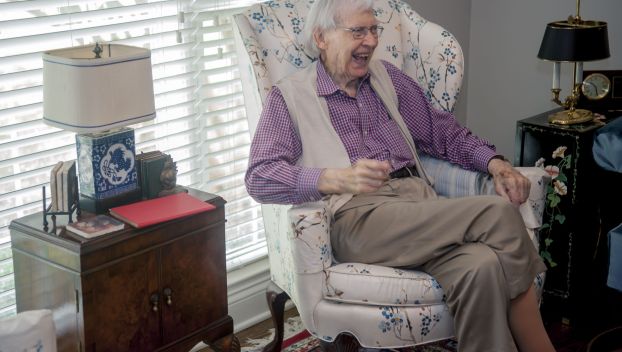
News
Veteran of three major wars shares story
As a veteran of World War II, the Korean War and the Vietnam War, retired Col. Arthur L. ... Read more

As a veteran of World War II, the Korean War and the Vietnam War, retired Col. Arthur L. ... Read more
Many veterans don’t like to discuss their time in a combat zone. Those who served in combat have ... Read more
Retired Col. Greg Lowe, retired Col. Mick Devine, his son, Sean, and Carol Mays Dillard sat in the ... Read more